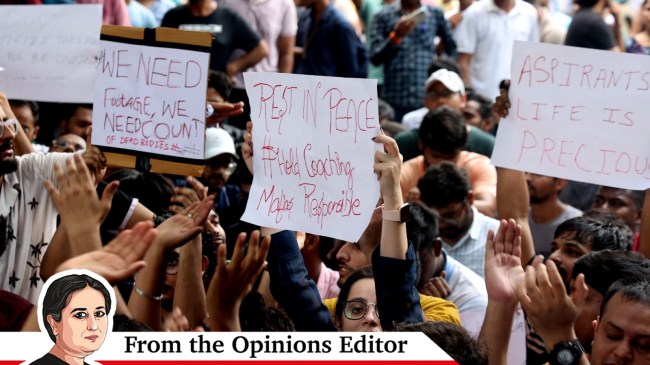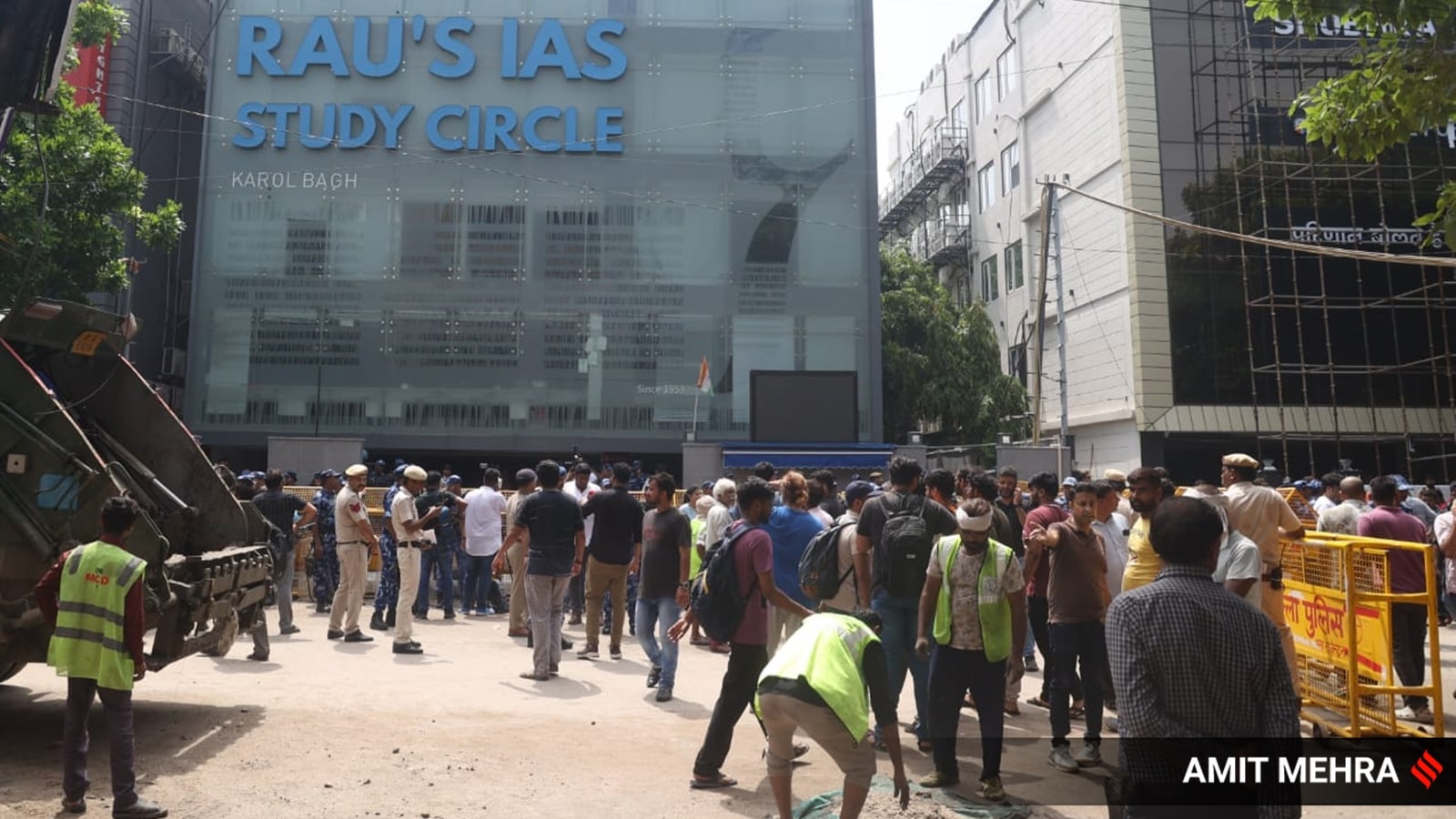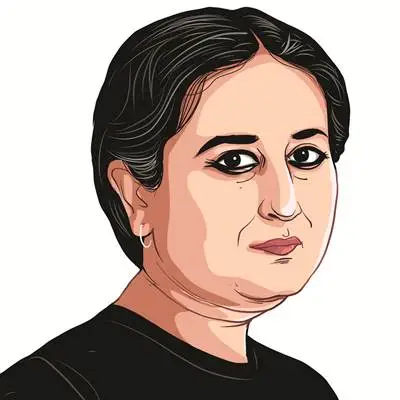Opinion Vandita Mishra writes: The death of three students
In the flooded basement of the UPSC coaching centre in Delhi, the coming together of several crises
 Students protesting after 3 UPSC aspirants passed away at a coaching centre in Delhi. (Express photo by Amit Mehra)
Students protesting after 3 UPSC aspirants passed away at a coaching centre in Delhi. (Express photo by Amit Mehra) Dear Express Reader
This week, it came to light that a doctoral research proposal on Kashmir’s ethnography and politics, which cites distinguished linguist Noam Chomsky’s criticism of the NDA government, led to a show-cause notice to a PhD scholar and a disciplinary inquiry against his supervisor, focusing on his role and the motivation behind the proposal, at the South Asian University in Delhi.
This week, three students, Tanya Soni, Shreya Yadav and Nevin Dalwin, died because of waterlogging after a drain burst due to heavy rain in a UPSC coaching centre running in a cramped basement in Delhi’s Old Rajinder Nagar — only days after another UPSC aspirant was electrocuted on a waterlogged Delhi street.
These two stories are unrelated to each other. And yet they belong to the same distorted system — in which students’ thoughts are policed extremely efficiently, by the state directly or by authorities second-guessing the powers-that-be, while the state looks inert and ramshackle, doing little or nothing, when it comes to ensuring students’ basic safety and well-being.
In the aftermath of the deaths in the UPSC coaching centre, the blame game that erupted between the AAP and BJP, the parties that rule Delhi and the Centre respectively, is also telling. The BJP pins the blame on the AAP MLA and the AAP-run PWD and MCD. The AAP institutes an inquiry and talks of administrative failure, all the while pointing out that the area’s councillor for the past 15 years belonged to the BJP, in an attempt to distance itself from the tragedy.
 Students protesting in front of Rau’s Study Circle in Delhi after 3 UPSC aspirants died due to the basement flooding late on Saturday night. (Express photo by Amit Mehra)
Students protesting in front of Rau’s Study Circle in Delhi after 3 UPSC aspirants died due to the basement flooding late on Saturday night. (Express photo by Amit Mehra)
Look closer and the flooded basement in Old Rajinder Nagar starkly frames not one but several crises.
The desperate flocking of the country’s young to coaching centres in pursuit of their UPSC dream, in an economy where jobs are hard to find, government jobs carry an outsized allure, and even the tag of “UPSC-aspirant” becomes a status symbol. The mostly unchecked and unregulated proliferation of coaching centres and teaching shops in ill-lit, cramped areas of small towns and big cities, that are more vulnerable to fire hazards and water-logging, with rescuers’ access to them made difficult by traffic jams and escape for the trapped rendered almost impossible by inadequate points of exit. Here, narrow, airless rooms are stuffed full of students. Here, no one objects to the flouting of building bye-laws, the violation of safety norms or the lack of basic amenities, in terms of cleanliness and hygiene, or protection from sexual harassment.
The pitched political battle in the aftermath of the deaths of the three students who left their homes in Telangana, UP and Kerala to study for the UPSC in Delhi also points to the national capital’s disheveled governance.
The long-playing saga of the BJP versus AAP, Centre vs Delhi government, with the L-G acting as the Centre’s long arm, has led up to a bizarre arrangement. Chief Minister Arvind Kejriwal is running, or mis-running, the show from jail, even as the corruption case in which he is allegedly involved unfolds slowly and inconclusively. Meanwhile, the bitterness between both parties and governments located in the capital continues to spill over reflexively — even after a tragedy such as this one that called for them not to turn on each other but to, together, address themselves to the bereaved families and fix accountability.
Safety audits and a stricter implementation of guidelines for coaching centres in Delhi and elsewhere are needed, of course. But the day after, what is also needed is for the AAP to ask itself some larger questions.
Is it doing justice to Delhi, the city not just of Delhi-ites but also of all those who come to it, for study and work and a home away from home, from across the country? Is it doing all it can to make the city more capacious and welcoming and hospitable, and most of all, a safe space, especially for the young and vulnerable?
Can it do its best, and be seen to do so too, with its most powerful leader and chief minister in jail and its government reduced to a disembodied spectacle?
The death of the students, and the distasteful political wrangling in the aftermath, must also make the BJP-ruled Centre pause. If the AAP government has made things more difficult for itself by digging in its heels on the matter of Kejriwal’s continuance in office, the Modi government and its nominee, the L-G, must own their large share of responsibility for the daily tug of war that is taking a mounting toll on the governance of Delhi.
The people of Delhi deserve a government that is fully attentive to their burgeoning needs, and wholly responsive to their crises. They deserve a city where students feel both safe and free.
Where, after the pointless death of three students, the buck stops somewhere, and isn’t forced to a halt at the gates of a jail, or gets entangled in the rope being pulled at two ends by two governments with unceasing hostilities.
Till next week,
Vandita






